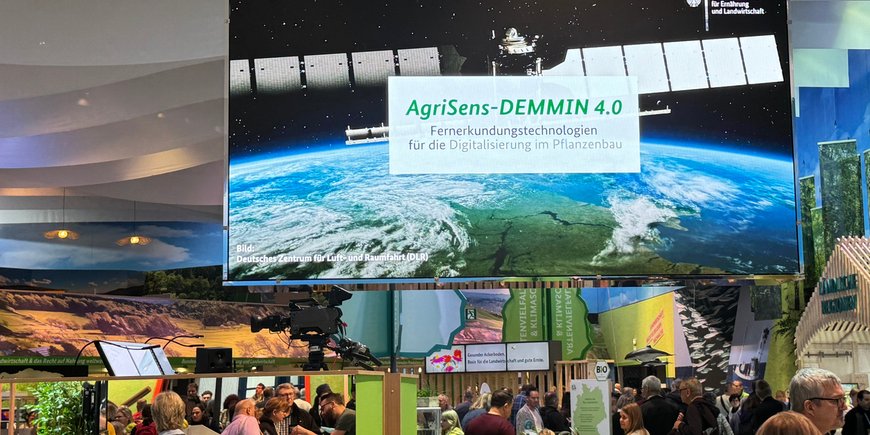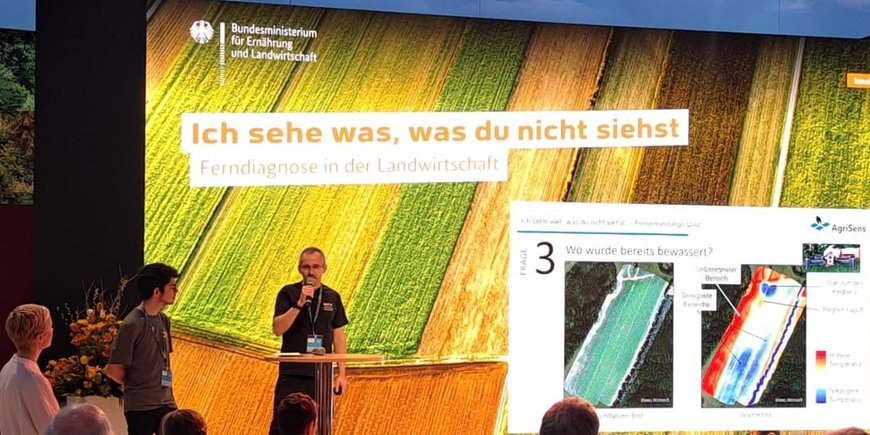From January 19th to 28th, 2024, the AgriSens-DEMMIN 4.0 project (Section 1.4) had the opportunity to present itself at the Green Week in Berlin. Together with other exhibitors and scientific projects AgriSens-DEMMIN 4.0 was represented in the hall of the Federal Ministry of Food and Agriculture (BMEL). The research team presented their work on remote sensing technologies for digitalization in agriculture in a citizen-friendly and interactive way. There was a lot to discover at our stand. For example, the web application “Xregnet”, developed by GFZ FERN.Lab, which enables farmers to easily query precipitation data at high spatial resolution via X-band radar for their areas. A model of the DLR DESIS hyperspectral sensor was also shown as well as the “FieldMApp” application, which is a direct development of the project. “FieldMApp” allows to easily record low-yield areas and to request and visualize remote sensing data, e.g. on plant vitality, directly via a central server (DataCube). Furthermore, other use cases from our project, e.g. stone detection using AI and measuring water balance from drone data, were also shown.
AgriSens-DEMMIN 4.0 (project duration 2020-2025) is one of the 14 “digital trial fields” funded by the BMEL to promote and advance digitalization in agriculture. The project, which is coordinated at the GFZ Potsdam, is a consortium of multiple research institutions and universities across Germany. These include the Julius-Kühn-Institute (JKI), the German Aerospace Center (DLR), the German Weather Service (DWD), the Martin-Luther-University Halle-Wittenberg (MLU), and the Friedrich Schiller University Jena (FSU), the Julius-Maximilians-University of Würzburg (JMU) and the Neubrandenburg University of Applied Sciences (HS-NB).
The Green Week was a great opportunity to give families, students and interested citizens insights into our work and the agricultural use cases within the project. In addition, we were able to be active on stage: interested visitors were asked to demonstrate their knowledge of remote sensing data in agriculture and nature conservation in an exciting quiz. Of course, the exchange with international experts and colleagues from other institutes and institutions was a central part as well. Both, the State Secretary of the BMEL, Silvia Bender, as well as the President of the Federal Agency for Agriculture and Food (BLE), Dr. Margareta Büning-Fesel, visited our booth.




![[Translate to English:] Employees of the Agrisens project in the hall of the Green Week.](/fileadmin/_processed_/b/4/csm_igw2024_agrisens_0010__002__f38d40e6e4.jpeg)
![[Translate to English:] Agrisens project employee in front of a screen](/fileadmin/_processed_/f/2/csm_igw2024_agrisens_0020__002__654569c7c1.jpeg)

